SCIENCE POLICY FELLOWSHIPS
SCIENCE POLICY FELLOWSHIPS | Global Change Center
Unfortunately, the GCC will not be funding a Science Policy Fellowship for the summer of 2025. We hope to be able to fund these again in the future. In the meantime, the School of Public and International Affairs (SPIA) will continue to offer the Washington Semester in Leadership and Governance (WSLG) program. We encourage you to visit their website for more information on this program and explore the opportunities it provides.
----------------------------------------------
Government agencies, nonprofit organizations, and think tanks need a pipeline of young talent with strong science and engineering backgrounds. However, most undergraduates receiving degrees in these fields lack the opportunities and connections needed to explore these career options.
The Global Change Center offers competitive fellowships to science and engineering undergraduate majors to cover the cost of tuition (in-state, 6 credits), housing and fees to attend the The School of Public and International Affairs' Washington Semester, Leadership through Policy and Governance Program during summer semester. This program offers a unique 11-week immersion into work experience within the nation’s capital. Students work on challenging science policy issues that shape communities locally and nationally while obtaining academic credit.
Our Science Policy Fellows spend the summer in our nation's Capital where they have an immersive experience in an agency or nonprofit that is aligned with their professional interests. Through shared housing and weekly programs, our Science Policy Fellows are integrated into a broad group of policy interns working across Washington DC where they share and learn from each other's experiences.
- Science and engineering majors who have earned a minimum of 60 credits (Junior or Senior status) and are in good academic standing are eligible to apply. The GCC Science Policy Fellowship is designed to support a unique track in School of Public and International Affairs' Washington Semester, Leadership through Policy and Governance Program for science and engineering majors who are specifically interested in the science-policy interface.
- All fellowship recipients in the Science Policy Track of the Washington Semester program will be placed in an internship within a public, private, or non-profit organization for a minimum of 30 hours per week. Examples of placement agencies in the nation’s capital include USFWS, USAID, USEPA, and USDA. Placements are based on each student’s interests and professional goals.
- Students will enroll for 6 credits in SPIA 4964 – Field Study.
- In-state tuition, fees, most housing costs, and a small stipend will be covered by the fellowship (~$7,000).
- Students will also participate in additional professional development activities throughout the summer.
- Program dates: TBD Annually
The Washington Semester Program is located in Old Town Alexandria, VA at the Alexandria Center of the College of Architecture and Urban Studies. The building has classroom and computer facilities and is convenient to the King Street Metro. Students receiving a Science Policy Fellowship from the Global Change Center are required to live at the Gallery Apartment Complex, university housing located in Alexandria, one block from the Alexandria Center.
Annually, December 1st.
Science and engineering students applying for a GCC Fellowship do not need to apply to the School of Public & International Affairs (SPIA) separately. Your application will be forwarded to SPIA.
- A completed application form. (Save the PDF file below to your Desktop before completing, sample application provided below.)
- Two faculty recommendation letters. (Faculty should send letters directly to the GCC Program Coordinator)
- A one-page resume.
EMAIL ALL MATERIALS BY THE DEADLINE DATE TO THE GCC PROGRAM COORDINATOR
For additional information about the SPIA Washington Semester, please visit their website at www.spia.vt.edu/undergrad/wslg.
For further questions about the GCC fellowship program, please contact:
Dr. Bill Hopkins
Director, Global Change Center
hopkinsw@vt.edu
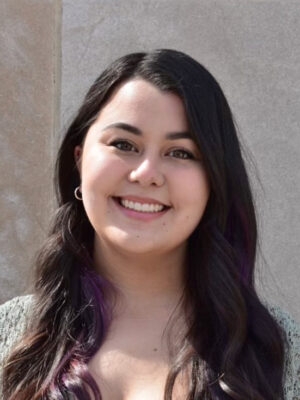
Carolina Bell
Biological Sciences
“The opportunity to gain real-world experience with science policy will help me to develop my career path post-undergrad.”
Carolina is a junior majoring in Biological Sciences with a minor in Diversity and Community Engagement. With aspirations to improve equity in the healthcare, STEM fields and public policy, Carolina hopes to partner with a non-profit organization or health agency for her internship in DC this summer. During her undergraduate career at VT, she’s served as the director of Women’s Advocacy on the Panhellenic Executive Council, as an At-Large Representative of the Student Government Association, and currently as president of the United Feminist Movement.
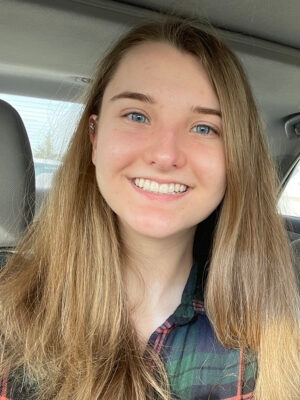
Erica Jones
Biological Sciences
“By participating in the Washington Semester program, I aim to develop new skills within public policy to make the world a better place to live, grow, and prosper for future generations.”
Erica is a junior majoring in Biological Sciences with minors in Medicine and Society and Interdisciplinary Engineering and Science. Working as a research assistant in the Translational Plant Sciences graduate lab with Dr. David Haak, Erica has gained valuable knowledge in the fields of plant genetics and computational biology. She is motivated to advance the future of agriculture and genetic engineering capabilities to inform policy decisions that will improve the human condition on earth, and also expand our horizon for agriculture in space. Erica currently serves as a senior mentor within the Orion Learning Community on campus, providing guidance to incoming students and organizing activities for the program.

Emily Mulcahy
Biological Sciences
“I’m very enthusiastic about the fellowship and excited to get an inside look on the processes used to develop solutions that aim to preserve the environment now and for future generations.”
Emily is a sophomore majoring in Biological Sciences on the Ecology, Evolution, and Behavior track with two minors in Wetland Science and Green Engineering. She is passionate about the responsible stewardship of ecosystems and natural resources, and eager to learn how research and science can positively impact the environmental policy realm. She has served as a student leader and mentor within the Meraki Living Learning Community, and is a current activist in Active Minds, demonstrating her commitment to creating a supportive culture and resources to enhance personal well-being for students at VT.
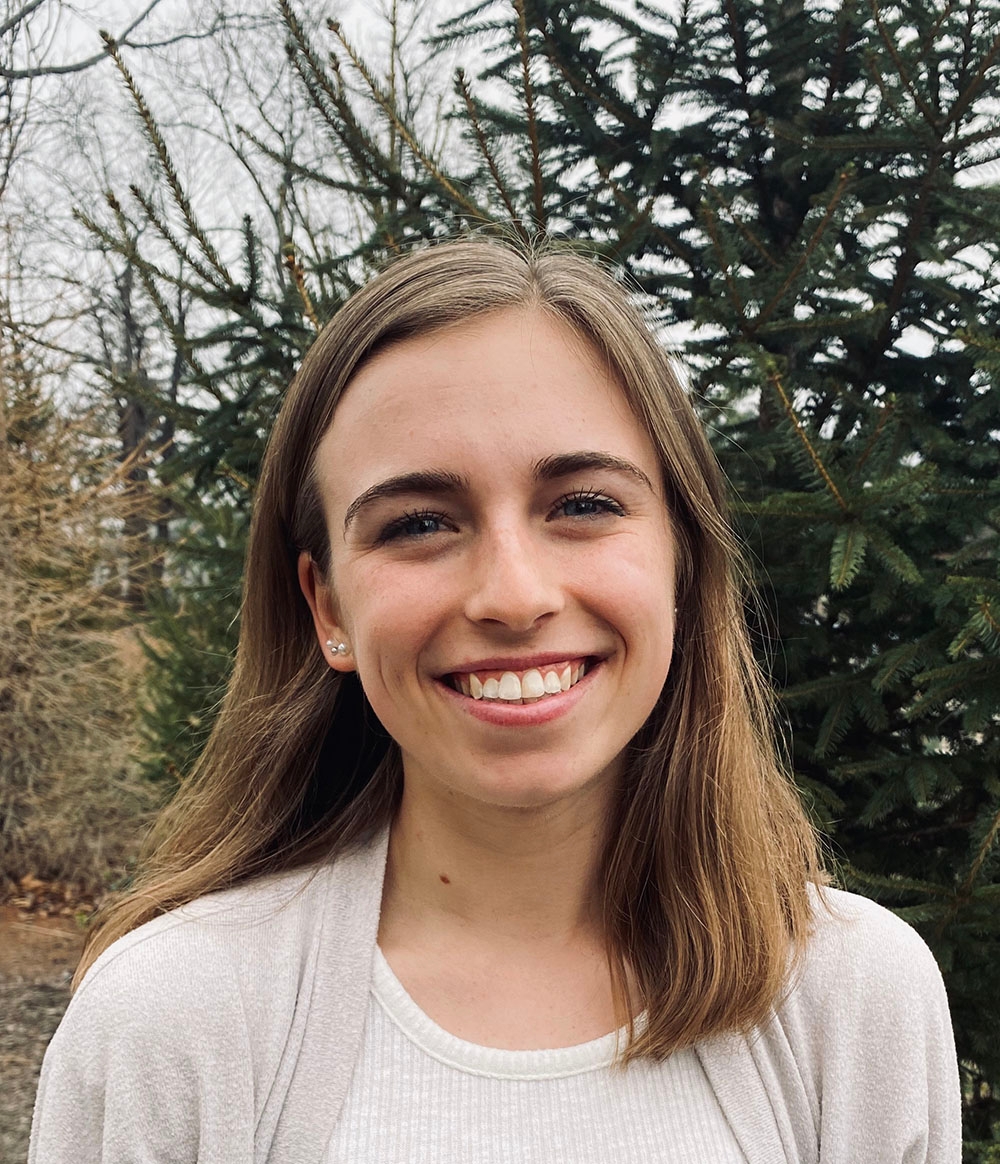
Kerry Desmond
Civil & Environmental Engineering
The Global Change Center awarded the 2020 Undergraduate Science Policy Fellowship to Kerry Desmond to attend the Washington Semester Program during summer semester this year. Ms. Desmond is the seventh student to receive this award.
Kerry is a junior majoring in Civil Engineering with a minor in Green Engineering, with aspirations to pursue graduate studies in Environmental Engineering and to become a public health engineer. Through this fellowship and the Washington Semester Program this summer, she intends to intern with the US Environmental Protection Agency, and is eager to gain experience in the policy sphere of this government agency.
“I’m drawn to public health engineering for the opportunity to work with citizens, policy makers, engineers and scientists to develop solutions to environmental issues.”
During the winter semester of 2019-20, Kerry traveled to Rwanda as part of the VT international service-learning course Global Design and Construction. She worked as part of an interdisciplinary team and alongside local professionals in Rilima, Rwanda to design parts of a water sanitation system for a community that lacks access to clean water. In addition to her normal coursework, Kerry currently spends additional time as a calculus tutor and a peer mentor for the Center for the Enhancement of Engineering Diversity (CEED) at Virginia Tech.
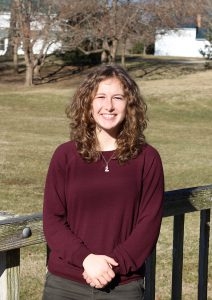
Julia Simpson
Biology and Spanish
The Global Change Center awarded the 2019 Undergraduate Science Policy Fellowship to Julia Simpson to attend the Washington Semester Program during summer semester this year. Ms. Simpson is the sixth student to receive this award.
Julia is a junior double majoring in Biology and Spanish at Virginia Tech, with a minor in Creative Writing. She is interested in the intersections between microbiology and national security, and holds ambition to work with an agency such as the US Army Medical Research Institute of Infectious Diseases in the future. Julia also has a passion for writing and activism, and intends to grow her experience in the political realm so that she can effectively contribute to the fields of science writing and public policy making.
During the summer of 2018, Julia worked as a research technician for the MouseLight project at Janelia Research Campus, a neuroscience research facility in northern Virginia, and the experience both solidified and amplified her excitement about a career in science. Currently, when she isn’t attending classes, Julia occupies her time serving as an undergraduate TA for Biology 1106; conducting research in microbial ecology under Steven McBride; writing and editing for The Interloper; and most recently, working as Events Chair for the newly-formed creative writing club on campus, CreativiTEA.

James Maze
Water: Resources, Policy and Management
The Global Change Center awarded an Undergraduate Science Policy Fellowship to James Maze to attend the Washington Semester Program during summer semester 2018.
James is majoring in Water: Resources, Policy, and Management at Virginia Tech. He is interested in integrating engineering-based solutions with government policy to solve problems related to water quality and water scarcity.
During spring semester 2017, James partnered with four graduate students to create an environmental policy addressing climate change. He and his team were finalists in the NYU Policy Case Competition and traveled to New York to present an energy infrastructure policy agenda. The previous summer, James worked at the Knoxville field office of the Tennessee Department of Environment and Conservation, where he was involved with land reclamation projects, drought management planning, and inspection of water treatment plants.
James is excited to receive this fellowship and sees his upcoming summer in Washington, DC as an opportunity to gain valuable work experience and a deeper understanding of environmental policy at the national level. After graduation, James intends to go to law school.
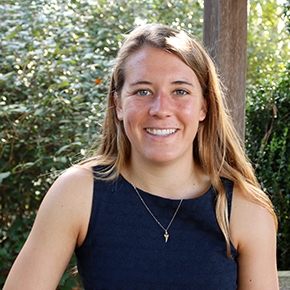
Kallie Peurifoy, Environmental Science
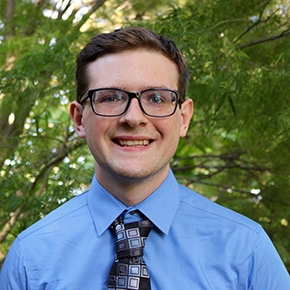
Steven Hall, Mechanical Engineering
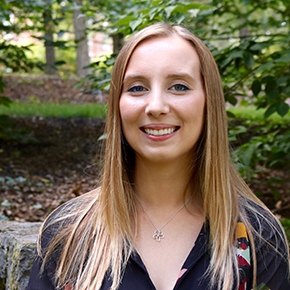
Lauren Buttling, Environmental Policy & Planning
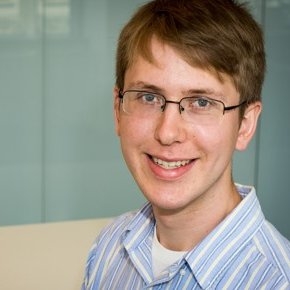
Austin Berrier, Engineering Science & Mechanics
IMPACT STORIES
Page 1 of 4 | 12 Results







